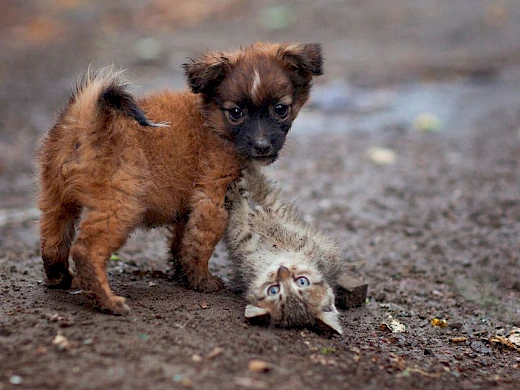Scandal in Cyprus: police ignore law protecting stray animals

A serious public scandal has erupted in Cyprus over police inaction regarding the protection of stray animals. According to animal rights activists, despite the active Law 175(I)/2020, which prohibits the destruction of feeding points for strays, law enforcement refuses to respond to citizens' and volunteers’ complaints, citing a disputed interpretation of the law.
The police claim that the law protects only feeding points officially approved by municipalities, ignoring feeding spots that volunteers have used for years. These locations are regularly destroyed, bowls are thrown away, and complaints go unanswered.
Stella Stylianou, head of the "Argos" animal shelter, says the situation has reached a critical point. Volunteers face not only indifference from the authorities but also direct aggression: they are insulted, threatened, and sometimes physically attacked. However, police refuse to treat such acts as offenses if they happen near "unofficial" feeding locations.
Activists are especially outraged that the legal opinion cited by the police has not yet been made public. Animal welfare organizations emphasize that neither the Legal Service nor the Attorney General has the right to alter the meaning of a law passed by parliament — they can only issue non-binding clarifications.
The Cyprus Animal Welfare Federation has been demanding official explanations from the Ministry of Agriculture and the Legal Service for months, calling for an end to arbitrary interpretations. According to Federation head Mary Chrisochou-Anastasi, ignoring the issue and allowing feeding sites to be destroyed contradicts basic principles of humane treatment of animals.
Activists warn that if authorities do not stop the destruction of feeding stations and fail to act in accordance with the law, the number of unsterilized and potentially sick stray animals will sharply increase. These animals will likely enter residential areas, schools, and public spaces — posing risks to both humans and animals.
They demand immediate action, the publication of the disputed legal opinion, and coordination between police, municipalities, and relevant services. As Stylianou stated, if the state won’t protect animals, it should at least stop interfering with those who do it voluntarily.
You may also be interested in:
- The Kamarés dam project in Larnaca is expected to resolve chronic flooding
- In Paphos, a car veered into a ravine, the driver sustained critical injuries
- Police in Cyprus detained five people and issued 216 citations during a nighttime operation
- Driver of a stolen vehicle detained in Nicosia
- Paphos is increasingly gridlocked: the transport situation is getting out of control


